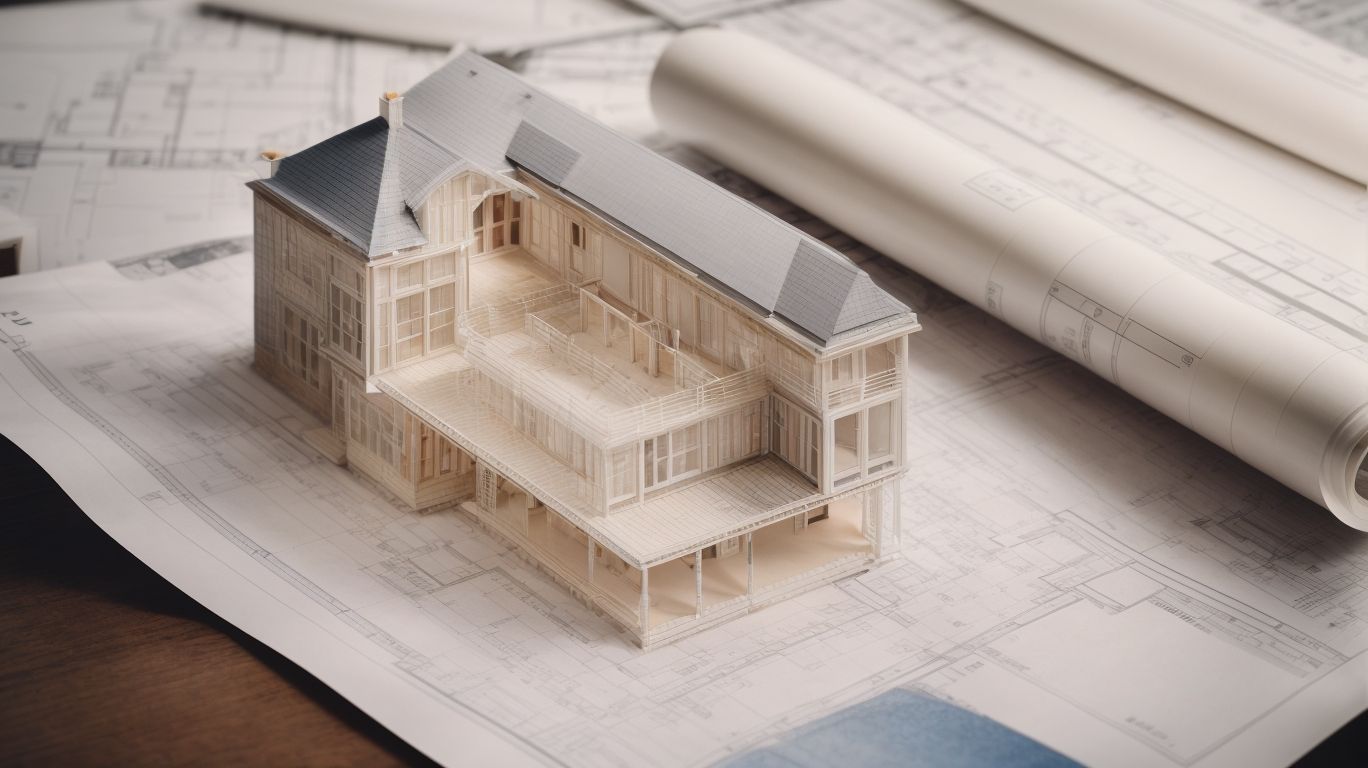
The Importance of Hiring a Licensed Structural Engineer
Are you in need of a structural engineer but not sure where to start? In this article, we will explore the role and responsibilities of a licensed structural engineer, the qualifications required to become one, and the services they can provide.
We’ll also discuss the benefits of hiring a licensed structural engineer and provide some tips on how to find the right professional for your project. Whether you’re planning a construction project or need a structural inspection, understanding the importance of hiring a licensed structural engineer is crucial. So, let’s dive in and learn more about this essential profession.
What Is a Structural Engineer?
A structural engineer plays a crucial role in ensuring the safety, integrity, and compliance of buildings and infrastructure within the construction industry. Their expertise in evaluating and certifying the structural integrity of various projects, alongside their knowledge of engineering principles and code compliance, makes them indispensable professionals in the construction process.
The involvement of structural engineers begins at the initial design phase. They collaborate with architects and construction teams to create safe and efficient structural systems.
Throughout the construction process, they conduct inspections, offer technical guidance, and ensure that the building adheres to all relevant regulations and standards. This ensures the safety and quality of the structure.
Structural engineers also have the responsibility of assessing the environmental impact and resilience of the structures they design. This highlights their critical role in promoting sustainable and safe construction practices.
What Are the Responsibilities of a Structural Engineer?
The responsibilities of a structural engineer encompass professional evaluation and certification of structural designs, ensuring compliance with engineering principles, risk assessment, and adherence to building codes, all while managing project complexities within the construction industry.
Structural engineers are responsible for analyzing and optimizing structural components to ensure the safety and functionality of infrastructure. This involves conducting thorough inspections, calculations, and simulations to guarantee structural integrity.
Working closely with architects, contractors, and other professionals, structural engineers play a vital role in coordinating design implementation and addressing any structural issues that may arise during construction. Their extensive knowledge of materials, construction methods, and project management allows them to oversee the successful execution of a wide range of building projects, from skyscrapers to residential developments.
Why Is It Important to Hire a Licensed Structural Engineer?
The importance of hiring a licensed structural engineer lies in their ability to uphold structural integrity through professional evaluation and certification, ensuring compliance with regulations and building safety standards.
Their expertise in risk assessment and adherence to industry regulations further emphasizes their significance in construction projects. “Structural engineers play a crucial role in ensuring the safety and reliability of buildings and infrastructure.” They conduct thorough evaluations to identify potential weaknesses and propose effective solutions to mitigate risks.
Their certification process involves rigorous testing and continuous education, ensuring that they stay updated with the latest techniques and best practices. This level of expertise allows them to make informed decisions and provide valuable insights to architects, contractors, and other professionals involved in the construction process.
What Is the Difference Between a Licensed and Unlicensed Structural Engineer?
The primary distinction between a licensed and unlicensed structural engineer lies in the professional responsibility held by licensed engineers to obtain building permits, manage professional liability, and showcase expertise in adhering to industry standards and regulations.
Licensed structural engineers undergo rigorous education and training, demonstrating their expertise in structural analysis and design, seismic considerations, and construction materials. They are also held to higher ethical standards, ensuring the safety and integrity of buildings.
In contrast, unlicensed engineers may lack the formal education and experience, potentially compromising the structural integrity of a building. Building permits often require the stamp of a licensed engineer to verify compliance with building codes, underscoring the significance of licensing in ensuring the safety and durability of structures.
What Are the Qualifications for Becoming a Licensed Structural Engineer?
The qualifications for obtaining a licensed structural engineer designation encompass a deep understanding of engineering principles, technical knowledge specific to the construction industry, expertise in regulations, and familiarity with a diverse range of building materials.
To become a licensed structural engineer, one must have a solid understanding of advanced mathematics, physics, and structural analysis. Along with these qualifications, strong problem-solving abilities, attention to detail, and effective communication skills are essential. Additionally, a comprehensive knowledge of environmental impact assessment and construction project management is crucial in this role. It is also important to stay updated with the latest technological advancements and industry standards to excel in this field.
What Education Is Required?
Becoming a licensed structural engineer necessitates a comprehensive education encompassing the intricacies of construction projects, structural solutions, adherence to engineering standards, and specialized knowledge in foundation design.
Individuals aspiring to pursue this career path typically begin by obtaining a bachelor’s degree in civil engineering or a related field, followed by a master’s degree focusing on structural engineering.
This educational background equips aspiring engineers with the necessary skills to analyze design principles, evaluate materials, and understand the structural integrity of buildings and infrastructures.
Coursework related to seismic and environmental considerations is essential for professionals who aim to develop sustainable and resilient structures, aligning with the contemporary emphasis on eco-friendly and adaptable construction practices.
What Exams Must Be Passed?
Aspiring licensed structural engineers must successfully pass rigorous exams evaluating their proficiency in structural calculations, understanding seismic activity, conducting building inspections, and overseeing construction supervision.
These examinations assess the candidates’ ability to analyze and design various types of structures, ensuring that they can calculate load-bearing capacities and assess potential weak points.
A comprehensive understanding of seismic activity is crucial, as engineers must skillfully evaluate a structure’s ability to withstand earthquakes and other natural forces.
Building inspections and construction supervision tests are designed to evaluate their ability to ensure compliance with safety standards and regulations, safeguarding the structural integrity of buildings and infrastructure projects.
What Services Can a Licensed Structural Engineer Provide?
Licensed structural engineers offer a diverse range of services, including comprehensive structural inspections, innovative structural design solutions, meticulous construction oversight, and in-depth forensic investigations into structural failures and modifications.
Structural inspectors are responsible for evaluating the safety and integrity of buildings and infrastructure. They offer innovative design solutions for a range of projects, including residential and commercial structures. Their construction oversight ensures compliance with structural plans and industry standards. Additionally, their expertise in forensic investigations allows them to identify the underlying causes of structural failures and recommend necessary modifications for safety and compliance.
Structural Inspections
Licensed structural engineers excel in conducting rigorous structural inspections, offering valuable insights into building renovation, structural maintenance, and upholding their professional responsibility towards ensuring structural safety and compliance.
The expertise of licensed engineers allows them to identify potential structural weaknesses, assess the integrity of building materials, and determine the need for repairs or reinforcements. These inspections are crucial in ensuring the safety of occupants and preserving the structural integrity of buildings.
Engineers adhere to industry standards and best practices, instilling confidence in the structural soundness of buildings. Through their thorough evaluations, they contribute significantly to the longevity and safety of structures, fulfilling their commitment to professional diligence and public safety.
Structural Design and Analysis
Licensed structural engineers specialize in innovative structural design and meticulous stability analysis, leveraging architectural plans, securing building permits, and prioritizing the integrity of load-bearing elements within construction projects.
Their expertise in structural design is instrumental in ensuring that buildings are not only aesthetically pleasing but also structurally sound and safe for occupants.
These experts assess and determine the appropriate materials and construction methods to ensure the longevity and safety of the structure. Their careful stability analysis helps anticipate and mitigate potential issues, enhancing the overall structural resilience.
Their attention to detail in architectural planning and securing building permits streamlines the construction process, ensuring compliance with regulations and standards. Their focus on load-bearing elements guarantees the enduring strength and stability of the building.
Construction Oversight and Management
Licensed structural engineers demonstrate exceptional prowess in construction oversight and management, navigating complex project management scenarios, optimizing building systems, and prioritizing stringent safety standards through their technical knowledge and expertise.
The role of structural engineers goes beyond technical expertise. They also play a crucial part in ensuring compliance with safety regulations and coordinating with various stakeholders. Additionally, they oversee the implementation of their designs to ensure structural stability. Their comprehensive understanding of structural integrity and building codes allows them to make informed decisions, mitigating potential risks.
Moreover, structural engineers are proficient in utilizing innovative technologies and sustainable practices. This further enhances the efficiency and sustainability of construction projects. With their expertise, they contribute to the success of projects while prioritizing safety and sustainability.
Forensic Investigations
Licensed structural engineers excel in conducting meticulous forensic investigations, delving into the root causes of structural failures, devising effective repair strategies, and managing professional liability with a keen eye for resolving structural anomalies.
Their expertise encompasses a deep understanding of material properties, structural dynamics, and construction methodologies, enabling them to investigate and analyze complex structural deficiencies. They play a critical role in identifying structural inadequacies, evaluating the structural integrity of buildings and infrastructure, and recommending appropriate remediation measures. Licensed structural engineers also navigate professional liability challenges by adhering to industry standards, codes, and regulations, ensuring the safety and stability of structures while mitigating risks associated with their professional practice.
What Are the Benefits of Hiring a Licensed Structural Engineer?
Hiring a licensed structural engineer guarantees a multitude of benefits, including assured safety and compliance, unparalleled expertise and knowledge, potential cost savings, and the invaluable peace of mind that comes with their professional involvement in construction projects.
The training and experience of licensed structural engineers enable them to ensure that all structural elements meet safety regulations and building codes. This minimizes the risk of accidents or structural failures.
Their expertise also allows them to design efficient and durable structures, potentially saving on material and construction costs. Having a licensed structural engineer on board provides confidence to stakeholders and clients, knowing that the project is in capable hands. All necessary precautions have been taken to ensure its success.
Ensures Safety and Compliance
Licensed structural engineers play a pivotal role in ensuring safety and compliance by meticulously adhering to safety standards, building codes, conducting thorough structural assessments, and upholding the highest levels of technical knowledge and engineering ethics.
Structural engineers are responsible for designing and evaluating various components of buildings and infrastructure, including beams, columns, and foundations. Their goal is to ensure that these structures can withstand the forces they may encounter.
Working closely with architects and construction teams, structural engineers integrate safety measures and optimal designs within the overall architectural vision. They are dedicated to ongoing professional development and staying up-to-date with the latest engineering technologies and practices, enhancing their ability to ensure structural integrity and safety compliance.
Expertise and Knowledge
The expertise and knowledge possessed by licensed structural engineers encompass a deep understanding of technical knowledge, proficiency in stability analysis, familiarity with diverse building materials, and the ability to account for seismic activity in their structural solutions.
Their technical knowledge allows them to comprehend the principles of structural engineering, including load-bearing calculations, safety codes, and construction methods. They leverage stability analysis to assess how structures will behave under various conditions, ensuring the safety and durability of their designs.
Their familiarity with a wide range of building materials enables them to select the most suitable ones for specific projects, considering factors such as strength, flexibility, and environmental impact. Licensed structural engineers integrate considerations for seismic activity into their solutions, implementing measures to minimize potential damage and ensure resilience in the face of earthquakes and other seismic events.
Cost Savings
Hiring a licensed structural engineer can result in significant cost savings through optimized structural design, efficient modifications, and streamlined project management, particularly in the realm of foundation design within construction projects.
Licensed structural engineers have the ability to identify potential areas of improvement in the design process. This can result in cost reductions in materials and labor. Their expertise allows them to carefully consider modifications, preventing costly errors or rework.
This attention to detail contributes to efficient project management, minimizing delays and unnecessary expenditures. Investing in a licensed structural engineer can yield long-term savings by ensuring the structural integrity of the building and avoiding costly repairs and renovations in the future.
Peace of Mind
The involvement of licensed structural engineers in construction projects offers a profound sense of peace of mind. This stems from comprehensive building inspections, diligent structural maintenance, attentive professional responsibility, and the assurance of structural stability.
Structural engineers are essential in ensuring buildings meet safety standards. They provide property owners with confidence in their investments. These licensed professionals possess a deep understanding of building codes and regulations, allowing them to identify and address potential issues before they escalate. This proactive approach not only safeguards the structural integrity of a building, but also mitigates the risk of costly repairs or, even worse, structural failures.
By entrusting these responsibilities to licensed professionals, clients can have peace of mind knowing their buildings are in capable hands. This contributes to overall peace of mind and reassurance for property owners.
How to Find a Licensed Structural Engineer?
Locating a licensed structural engineer can be accomplished through various channels, including reaching out to local government agencies, seeking recommendations from industry professionals, and conducting thorough research online to identify reputable and qualified professionals.
Individuals seeking structural engineering services have a range of options to consider, including local government agencies, recommendations from industry professionals, and online research. These avenues can provide valuable insights into reputable structural engineers, allowing individuals to review qualifications, experience, and client feedback before making a decision.
Local government agencies often have databases of licensed professionals, making them a good starting point for those in need of structural engineering services. Seeking recommendations from industry professionals, such as architects or builders, can also provide valuable insights. Additionally, conducting online research allows individuals to review the qualifications, experience, and client feedback of potential structural engineers before making a decision.
Check with Local Government Agencies
Local government agencies serve as valuable resources for locating licensed structural engineers. They offer insights into building permits, construction supervision, and the professional responsibility upheld by licensed professionals within the construction industry.
Construction agencies have a crucial role in upholding safety standards and regulations for construction projects, protecting the community’s well-being. They carefully evaluate the qualifications of structural engineers to ensure that only competent professionals are in charge of designing and supervising projects. These agencies also offer a means for the public to verify the credentials and track records of licensed engineers, instilling trust in their expertise and integrity.
Ask for Recommendations
Seeking recommendations from industry professionals and peers can yield valuable insights into licensed structural engineers renowned for their professional liability management, expertise, commitment to building safety, and innovative structural solutions.
When seeking out engineering services, it can be beneficial to gather recommendations from those who have firsthand experience working with skilled engineers. These references can provide valuable insight into an engineer’s understanding of structural integrity and ability to create innovative design solutions.
By utilizing these recommendations, individuals can connect with reliable professionals who prioritize building safety and implement effective, sustainable structural solutions. This not only instills confidence in the chosen engineer, but also promotes a culture of collaboration and knowledge sharing within the industry.
Research Online
Conducting thorough research online facilitates the identification of licensed structural engineers with demonstrated expertise, commendable qualifications, profound experience in the construction industry, and a track record of excellence in handling diverse structural components.
When seeking out a structural engineer, it’s crucial to verify their licensing and certifications. Online research allows you to review their credentials, ensuring they possess the necessary qualifications to take on your project.
Industry experience is paramount. Look for engineers with a proven track record in dealing with a variety of structural challenges, as this demonstrates their proficiency in the field.
By harnessing the power of online resources, one can make informed decisions and secure the services of a highly qualified structural engineer for their construction needs.




No Comments